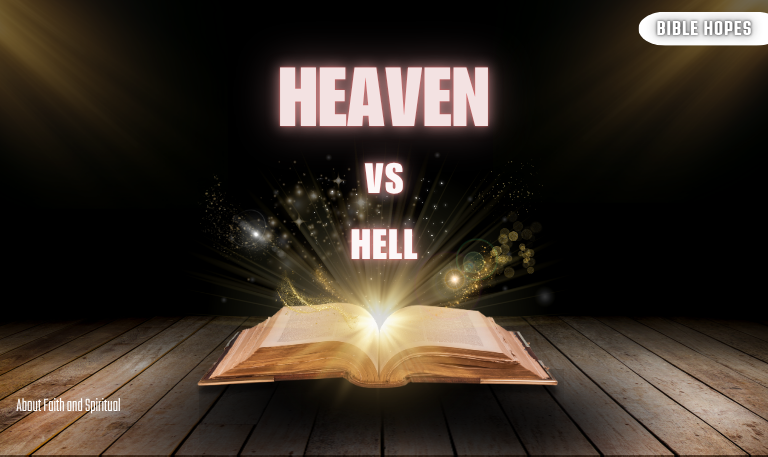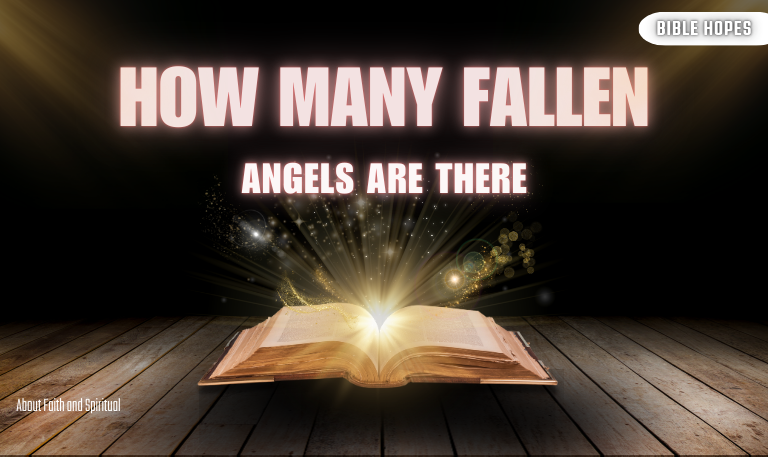The concept of Heaven and Hell has captured the imaginations of humanity for millennia. These contrasting realms are found in almost every major religion, each with its own interpretation and teachings about the afterlife. But what exactly do these realms represent? Are they symbolic or real places? What is the nature of the battle between good and evil, and how do Heaven and Hell fit into this cosmic struggle?
In this comprehensive guide, we will explore the various interpretations of Heaven vs Hell, analyze religious teachings, and examine philosophical perspectives on these realms. We’ll also dive deep into how these ideas have influenced culture, literature, art, and society throughout history.
1. What Are Heaven and Hell?
Heaven and Hell represent the two extremes in the afterlife, often depicted as places where souls experience either eternal bliss or eternal suffering. These realms are often framed as the outcomes of moral decisions made during one’s lifetime, with Heaven as the ultimate reward for virtuous living, and Hell as the punishment for evil actions.
Defining Heaven and Hell
Heaven is often described as a divine paradise where the faithful experience eternal peace, joy, and communion with a higher power. It is depicted as a realm of light, love, and divine presence.
Hell, in contrast, is a place of torment, punishment, and separation from God. It is often depicted as a dark, fiery realm where souls endure eternal suffering due to their immoral choices during their earthly lives.
The Importance of These Realms in Human Beliefs
Heaven and Hell serve as powerful moral and existential frameworks in many religious and spiritual systems. These concepts influence people’s actions, decisions, and worldview, encouraging them to live in accordance with religious teachings or ethical principles to avoid suffering and attain eternal joy.
Read Also: What Is Jesus Middle Name
2. Religious Perspectives on Heaven and Hell
The interpretation of Heaven and Hell varies greatly across different religious traditions. Let’s explore some of the major religious perspectives on these realms.
Christianity: Eternal Reward and Punishment
In Christianity, Heaven and Hell are the ultimate destinations after death. Christians believe that faith in Jesus Christ and living a righteous life lead to Heaven, while those who reject God or live in sin face eternal damnation in Hell.
Heaven is described in the Bible as a place of everlasting life with God, where there is no pain or suffering.
Hell is often portrayed as a fiery pit of torment, where those who have lived in rebellion against God are eternally separated from His presence.
Islam: Jannah and Jahannam
In Islam, the afterlife is divided into two realms: Jannah (Heaven) and Jahannam (Hell). Muslims believe that those who live righteous lives in accordance with Allah’s will will enter Jannah, a paradise filled with rivers, gardens, and rewards beyond comprehension. Conversely, those who reject Allah or live sinful lives are condemned to Jahannam, a place of eternal suffering.
Hinduism: Moksha and Naraka
Hinduism offers a more complex view of the afterlife, with multiple realms where souls can be reincarnated based on their karma (actions) in previous lives. Moksha is the ultimate goal, the liberation from the cycle of birth, death, and rebirth, leading to union with the divine. Naraka is the Hindu concept of Hell, where souls undergo punishment before being reborn.
Buddhism: Nirvana vs. Hellish Realms
In Buddhism, Nirvana is the ultimate state of enlightenment, free from suffering and the cycle of reincarnation. Hellish realms exist in Buddhist cosmology, where beings suffer due to their negative karma, but these are not permanent, as reincarnation continues until one attains Nirvana.
Other World Religions: Zoroastrianism, Judaism, and More
Zoroastrianism features a dualistic cosmology with a final judgment determining whether one’s soul is sent to Heaven (the House of Song) or Hell (the House of Lies).
In Judaism, the afterlife is less emphasized, but there is a belief in Sheol as a shadowy place of the dead, and some traditions include concepts of Heaven and Hell-like realms, such as Gehinnom.
3. The Battle Between Good and Evil
The fight between good and evil is at the core of the Heaven vs Hell narrative. Many religious traditions view these realms as part of a larger cosmic struggle, where Heaven represents divine goodness and Hell is the domain of evil forces.
Defining Good vs. Evil
Good is typically associated with righteousness, virtue, and moral integrity, while evil is characterized by sin, corruption, and malevolent behavior.
In many traditions, God or a divine figure represents the ultimate good, while Satan, demons, or malevolent forces represent evil.
The Role of Heaven and Hell in the Cosmic Battle
Heaven and Hell serve as the eternal consequences of this struggle. Those who follow the path of good are rewarded with Heaven, while those who embrace evil are consigned to Hell.
Free Will and Moral Choices
A key aspect of this battle is free will. Most religious teachings emphasize that individuals have the freedom to choose between good and evil, and these choices determine their ultimate fate.
4. Heaven: The Realm of Eternal Joy
Descriptions of Heaven Across Religions
Christianity: Heaven is described as a place where God resides, and believers will dwell in His presence, experiencing joy and peace.
Islam: Jannah is depicted as a lush paradise filled with rivers of milk, honey, and wine, where there is no pain or sorrow.
Hinduism: Heaven in Hinduism is often viewed as a temporary realm for souls enjoying the rewards of good karma before eventually seeking Moksha.
Buddhism: Nirvana, while not a traditional “Heaven,” is the ultimate liberation from suffering and the cycle of rebirth.
The Nature of Eternal Life and Reward
In all traditions, Heaven is viewed as a place of eternal life, peace, and reward for living virtuously. The rewards vary, but they all center on the concept of communion with the divine.
Who Goes to Heaven? Criteria for Admission
The path to Heaven typically involves following the teachings of the respective religion, performing good deeds, and living a righteous life. In Christianity, for example, faith in Jesus Christ is central to attaining Heaven.
5. Hell: The Realm of Eternal Suffering
Depictions of Hell Across Religions
Christianity: Hell is a place of eternal torment, often portrayed as a lake of fire, where the wicked are separated from God.
Islam: Jahannam is a terrifying place of eternal suffering, with various levels of punishment for different sins.
Hinduism: Naraka is a temporary place where souls are punished before being reincarnated.
The Nature of Punishment and Suffering
Hell is universally depicted as a realm of torment and suffering. The punishments vary, but they are often described in graphic detail, serving as a deterrent to immoral behavior.
Who Goes to Hell? Criteria for Damnation
The criteria for going to Hell typically involve actions considered sinful or in opposition to divine commandments. In Christianity, for example, those who reject Christ are believed to be condemned to Hell.
6. Philosophical and Ethical Considerations
The Problem of Evil: Why Does Hell Exist?
The existence of Hell raises the philosophical issue of why a benevolent and omnipotent God would create a place of eternal suffering. Various theological perspectives attempt to explain this, including the concept of free will and the need for moral choices.
Is Heaven a Reward for Good Behavior or Faith?
This question delves into the nature of salvation. Is Heaven earned by moral actions or by faith in a divine being, as in Christianity?
7. Cultural Influence of Heaven and Hell
Heaven and Hell have shaped culture, literature, and art throughout history, influencing everything from medieval paintings to modern films.
Heaven and Hell in Literature
From Dante’s Divine Comedy to Milton’s Paradise Lost, the afterlife has been a rich source of literary inspiration. These works explore the moral consequences of human actions, the nature of sin, and the ultimate fate of the soul.
Read Also: Angels vs Demons
8. Scientific and Secular Perspectives
Are Heaven and Hell Real? A Scientific Inquiry
From a scientific perspective, Heaven and Hell remain outside the realm of empirical evidence. Some argue that belief in these realms is psychological or metaphorical, not literal.
The Psychological Impact of Belief in Heaven and Hell
Belief in Heaven and Hell has profound effects on behavior, ethics, and mental health. The fear of Hell and the hope for Heaven can shape moral decisions and coping strategies.
9. The Evolution of Heaven and Hell
How Concepts Have Evolved
Over time, interpretations of Heaven and Hell have evolved, influenced by changing cultural, philosophical, and religious beliefs.
Heaven vs Hell FAQs
Q: What is the difference between Heaven and Hell in Christianity and Islam?
A: Heaven in both religions is the ultimate reward for righteous living, but Hell in both is a place of punishment for the wicked. Christianity often focuses on faith in Christ, while Islam emphasizes both faith and good deeds.
Q: Why do some people believe in Hell and others don’t?
A: Belief in Hell depends on religious or philosophical perspectives. Some see it as a symbolic concept, while others view it as a literal place of eternal punishment.
Q: Can people in Hell ever get out?
A: In many religious traditions, Hell is considered permanent, though some beliefs allow for eventual redemption or reincarnation.
Conclusion
The debate between Heaven vs Hell is not just about contrasting realms but reflects the larger questions of morality, justice, and the meaning of life. These two realms continue to shape how we live, how we think about life and death, and how we interpret the cosmic battle between good and evil. Whether viewed through the lens of religious faith or philosophical inquiry, Heaven and Hell remain profound and powerful symbols that influence human behavior and belief systems around the world.



![15 Pink Bible Verses | Discover Meaning, Love [2025 Guide] 5 15-Pink-Bible-Verses-Discover-Meaning,-Love-[2025-Guide]](https://biblehopes.com/wp-content/uploads/2025/05/15-Pink-Bible-Verses-Discover-Meaning-Love-2025-Guide.png)